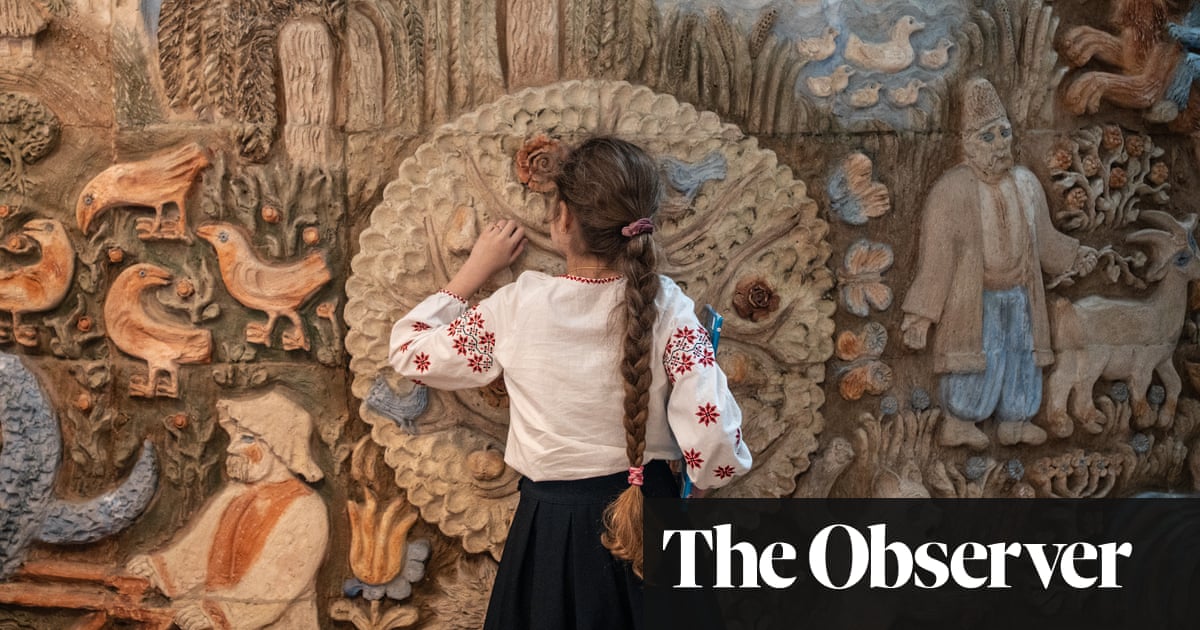
CHENNAI: One of the most heartstring-tugging aspects about the documentary “Children of the Enemy” by Chilean-Swedish auteur Gorki Glaser-Muller, is parental love and compassion for a child.
For the latest updates, follow us on Instagram @arabnews.lifestyle
But the movie, that recently had its world premiere at the Copenhagen Documentary Film Festival CPH:DOX, goes beyond that in conveying the message that children still need care and understanding even if their parents have committed horrific crimes.
Muller follows his friend and the “hero” of his documentary, Patricio Galvez, a Chilean-Swedish musician in his 50s with a heart condition, as he goes in search of his seven grandchildren.
The story is well-known in Sweden because their father, Michael Skramo, joined Daesh and travelled along with his radicalized young wife, Amanda, and four kids to Raqqa in Syria sometime in 2014. The couple had three more children in Syria as their father became an active recruiter for the terror group, using social media to grow membership.
Muller’s work opens with grandfather Galvez looking at images of his grandchildren sent to him by Amanda, a chain of photographs that was cut short when she and her husband were killed, leaving behind seven orphans.
At home in Gothenburg, Galvez leads an unhappy life pining for a daughter he adored and yearning to see her children. A mild-mannered musician, he said: “To think my daughter joined this terrorist cult is horrible. But the children had nothing to do with this, they must not suffer.”
It is that thread of humanity that makes this crisp 95-minute documentary so important and powerful.
The Swedish government was unwilling to help him bring the children back home and Galvez realized that he would have to battle on alone. So, in 2019, he flew to Erbil, Iraq, with Muller, who was an acquaintance. The documentary follows him as he sits in hotel rooms, through long, lonely nights, surrounded by the toys and clothes he had bought for the children.
Travelling through Iraq to Syria, his journey is ridden with guilt of having lost a daughter, and uncertainty. His soul-searching over the radicalization of his daughter is a large part of the narrative, and one that happily saves this documentary from being a run-of-the-mill rescue mission led by a golden hero.
The film charts the 45-day excruciatingly torturous journey filled with peril, but ultimately ends with Galvez being united with his seven grandchildren. It was nothing short of a miracle, and this feature takes viewers behind the headlines — the story was widely covered in the media — and sheds light on the harsh reality of innocent lives paying for the actions of their parents in a squalid camp.
Muller’s movie has very little drama, something a fictionalized version of the story would have compelled him to do. He said he was to an extent “a fish out of water on this odyssey” as he was first and foremost a feature filmmaker, and he admitted that his knowledge of the situation in Iraq and Syria was poor.
“To be honest, I was terrified of going there. I feared for my life,” he told media. But this emotion serves the film in showing how invested Muller was in the mission and many viewers will empathize when, after a breakthrough, both the grandfather and the director break down in tears.
It is a thought-provoking, timely piece that opens up the discussion on how to treat the children of Daesh fighters — and in a world where vitriol and hate is often the commanding emotion, it is a discussion that needs to be had.










